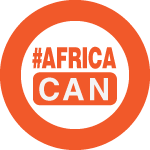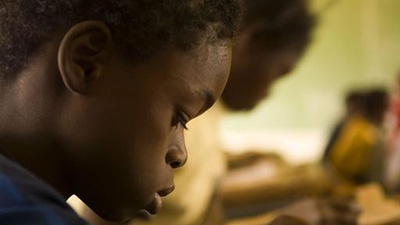Country Overview
Mozambique sits on the southeast coast of Africa, with a population of 27,977,863 as of 2015. It’s capital, Maputo, sits are the southern end of the country. Mozambique is bordered by South Africa, Swaziland, Zimbabwe, Zambia, Malawi, and Tanzania.
Political Context
Talks are under way to bring about a definitive ceasefire between ruling party Frelimo and former rebel group turned-opposition-party, Renamo. A low level insurgency broke out soon after the announcement of the last presidential elections results, which according to Renamo, were fraudulent. President Felipe Nyusi and Renamo leader Afonso Dhlakama are reported to be in constant communication since December 2016, resulting in a truce that has since been extended until May of this year. The sides have agreed to establish working groups on the key issues of decentralization and military affairs, and came up with concrete recommendations that could pave the way for a definitive cease fire.
Looking ahead, the Frelimo party is set to hold its congress in September of this year. Upcoming municipal election scheduled for 2018 will represent a major test for the party popularity in times of profound social and economic hardships. Despite these challenges, President Nyusi is likely to win support for his bid for an additional term in office in the presidential election in 2019.
Economic Outlook
There has been a rapid deterioration of the economy following the revelation of previous undisclosed borrowing. Mozambique’s Gross Domestic Product (GDP) dropped to 3.3% in 2016, down from 6.6% in 2015. The World Bank’s growth forecast for 2017 has been revised downwards from 5.2% to 4.8% to factor in the effects of likely fuel shortages and the continued effects of restrictive monetary policy. Official figures highlight a substantial slowdown in growth for most sectors, including negative growth in hotel and restaurant services and utilities. Foreign direct investment declined by 20% indicating a decline in confidence in the economy. Tight monetary policy and high prices also contributed to growth deceleration. The fiscal deficit has fallen from 6.4% of GDP in 2015 to 4.7% in 2016 on a cash basis, but this masks the accumulation of significant arrears to private creditors and fuel suppliers.
There are signs that external pressures are easing. The Mozambican Metical appreciated by 10% against the U.S. dollar between October 2016 and February 2017 as reduced liquidity and an adjusting trade balance began to take effect. Inflation, driven by exchange rate variations, has started to decelerate. Central bank reserve levels increased in the three months to end-January 2017 with effects of policy measures introduced in the last quarter of 2016 materializing. Recent developments, including the $2.8 billion ENI/Exxon deal, indicate progress with the Rovuma basin gas megaprojects and bring the final investment decision for multi-billion dollar investments closer. Existing megaprojects have shown resilience, and may find additional support in the near term from an improving outlook for key commodity prices.
Development Challenges
Mozambique’s rapid economic expansion over the past decades has had only a moderate impact on poverty reduction, and the geographical distribution of poverty remains largely unchanged. Mozambique also needs to improve its social indicators. The 2015 Human Development Index put Mozambique at the bottom of the ranking (180th out of 188 countries and territories). The adult literacy rate is 56%, and average life expectancy at birth is 50.3 years. Mozambique faces other challenges such as increasing malnutrition and stunting. Malaria remains the most common cause of death, responsible for 35% of child mortality and 29% for the general population. HIV prevalence among adults shows a downward trend, stabilizing at a relatively high rate of 11.5%. The social progress index for access to improved sources of water and sanitation ranks Mozambique 128th and 119th, respectively, out of 135 countries. Indeed, Mozambique has one of the lowest levels of water consumption in the world despite being endowed with a variety of water sources. As a response to such challenges, the Mozambican authorities have considered the social sectors as top priorities and funding has been increasing for those sectors in general.
Since 1984, the World Bank Group (WBG) has been providing development assistance to Mozambique in accordance with the country’s needs and priorities, from economic stabilization in the 1980s, to post-war reconstruction in the early 1990s, to a comprehensive support strategy in the late 1990s. The current strategy, renamed Country Partnership Framework (2017-20), involved close collaboration with the government, development partners, civil society and private sector, and is due for release in the second quarter of 2017.
World Bank Group Engagement in Mozambique
As of March 2017, Mozambique’s International Development Association (IDA) portfolio consists of 20 IDA-funded projects with a net commitment of about $1.68 billion. Mozambique also benefits from 24 additional operations in the form of Recipient Executed Trust Fund (RETFs). The RETFs represent a total commitment of $173.85 million. In addition, the country is benefiting from financing of nine regional projects in a total amount of $233.3 million allocated to Mozambique, in the areas of agriculture, education, environment and natural resources, health, nutrition and population, and transport and information and communication technology (ICT). The portfolio covers the great majority of sectors with water receiving the highest share in terms of commitments, followed by transport and ICT, education and social, urban, rural and resilience. The above is complemented and informed by analytical work and technical assistance prepared in collaboration with the government of Mozambique, development partners, and other stakeholders, and are widely disseminated once completed.
Bank activities are complemented by those of the International Finance Corporation (IFC). IFC’s approach is to focus on strategic industries, namely, agribusiness, forestry, mining, energy, industry and financial services and its interventions seek to address cross-cutting issues of: (i) supporting the mobilization of both local and foreign direct investment to key sectors of the economy; (ii) strengthening private sector access to finance; (iii) supporting the development of infrastructure; (iv) improving the investment climate; and (v) strengthening small and medium enterprises (SME) management capacity building. The Multilateral Investment Guarantee Agency (MIGA), another of the WBG institutions active in Mozambique, has three investments under its guarantees in Mozambique.
Last Updated: Apr 26, 2017







